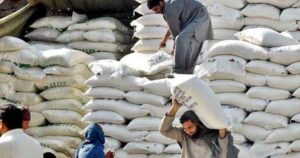PESHAWAR – A severe humanitarian crisis in Afghanistan is unfolding as thousands of Afghan refugees return from Pakistan to find their homeland ill-equipped to support them, with widespread reports of inadequate shelter, food shortages, and a lack of basic healthcare.
As Pakistan accelerates its campaign to expel undocumented Afghan nationals, concerns are mounting over the conditions awaiting returnees. The Pakistani government has deported more than 50,000 Afghans in recent weeks, many of whom held expired or unrecognized Proof of Registration cards.
Read more: Pakistan Tightens Grip as Afghan Refugees Deadline looms
The repatriation drive resumed on 1 April, and officials expect nearly 800,000 more to be removed in the coming months. However, the humanitarian crisis in Afghanistan is rapidly worsening due to the interim Afghan government’s failure to prepare for the mass influx. Aid agencies and human rights organizations report that the majority of returnees are settling in tent camps lacking proper infrastructure. Basic necessities like clean drinking water, medical care, and food are scarce.
According to a recent report by the United Nations High Commissioner for Refugees (UNHCR), 60 percent of returning Afghan refugees do not have access to safe drinking water. In several northern provinces, cold weather persists despite the arrival of spring, with confirmed deaths among children and the elderly due to exposure.
Afghan Refugees in Pakistan: Uncertainty, Fear, and an Uncertain Future
While Taliban spokesman Zabihullah Mujahid has claimed that temporary camps have been established for returnees, on-the-ground assessments suggest these facilities are insufficient and under-resourced. The international charity Save the Children has warned that the absence of medical support for pregnant women and newborns could lead to a spike in mortality rates.
The humanitarian crisis in Afghanistan continues to deepen as local authorities struggle to meet the needs of the displaced population. Without immediate international intervention, aid groups fear the crisis could escalate into a full-scale disaster by the end of 2025.
Analysts warn that if donor nations and relief organizations do not act swiftly, the return of Afghan refugees from Pakistan could transform into one of the region’s most devastating humanitarian emergencies in recent history.












